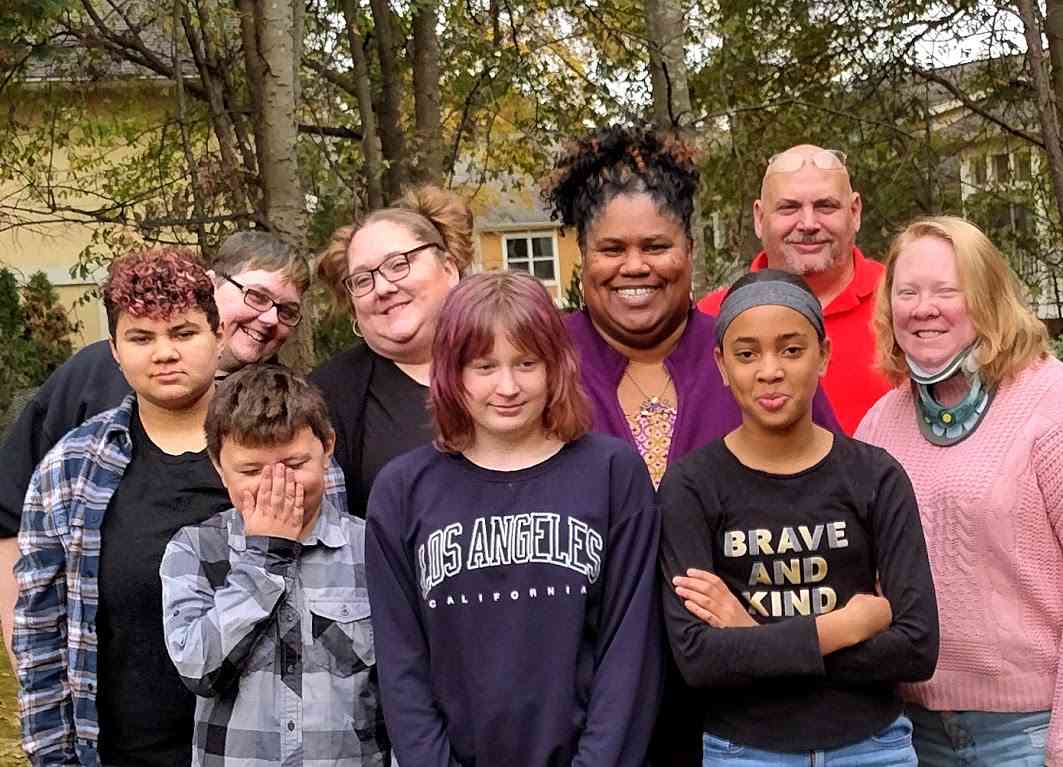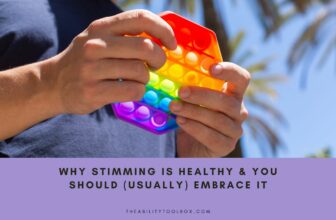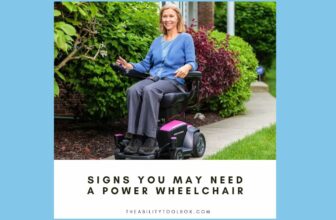If you live with debilitating chronic pain, the holidays can be hard and the idea of hosting a holiday gathering for your family may seem overwhelming. I know many of us could not imagine taking this on, but this year, I found ways to make it work. Below I list some tips I employed to make my holiday successful.
I have spent most of my life in pain, but in the last two years, I have been struggling with extraordinary chronic pain. It has left me pretty much homebound and wondering if I will ever be mobile again. I finally got diagnosed with fibromyalgia and we were able to get some of that pain under control. My chronic back pain and foot pain are another story. After everything we have tried, I am still debilitated.
The holidays were fast approaching and I was once again considering spending them alone. Then I decided that no matter how I am feeling, I want family around and I am going to make a way. So, I invited my daughters and their families over for Thanksgiving and made a plan to host them and still be as pain-free as possible. This decision was monumental for me and I was so excited.
Here are my 10 tips for hosting a holiday gathering as someone with chronic pain.
1. Accept help with preparing the holiday meal.
I knew how much my 11-year-old granddaughter enjoyed cooking, so I invited her to help me cook. She came two days before and we spent those days in the kitchen. I created written copies of my recipes so she could learn how to read a recipe and I would not have to do so much physical and emotional labor.
2. Use mobility aids to reduce chronic pain before and during your holiday celebration.
The week before the holiday, I decided to use my rollator (walker on wheels that has a seat). I had been shy about using it. I felt people would judge me and that I would be embarrassed. I went to a local farmers market (something I had been wanting to do but could not do without an aid) and was able to walk around and sit as needed. I ordered pies and bought fresh-picked collard greens and cabbage. This brought me such joy.
3. Sit in the kitchen while cooking your holiday meal.
On cooking days and during the holiday, I also acquired a chair for the kitchen and sat most of the time. You would not believe what a difference a chair made. By the end of the cooking day, I was not spasming and went to bed feeling pretty good (granted, I was tired).
4. Cook a few favorites and keep things simple.
Typically, I would make numerous dishes and everyone’s favorites. This time I selected a few of my favorites and my daughters used my recipes to make their favorites. So, we had a full menu without me having to do all the heavy lifting.
5. Prepare some holiday dishes a day or two in advance to avoid fatigue and a chronic pain flare-up.
Plan ahead. Some things do well in the refrigerator or freezer. There is no reason to do all the prep and cooking on the same day. I did my veggie prep days ahead and just stored them in the refrigerator. This strategy is very helpful.
6. Purchase what you can instead of cooking everything from scratch.
You do not have to do everything from scratch. You can buy already diced vegetables. Collard greens are available already cut and washed in a bag. I did not bake pies this year. The women who were selling pies at the farmer’s market had samples. I tried her pies and they were almost as good as mine. I bought three. I was going to make an almond cake, so I was able to take that off my list of things to do.
7. Do not clean your whole house.
My house needed a good cleaning before guests arrived. I knew I did not have it in me to cook and clean. I had to realize that if I wanted to enjoy my holiday celebration with my family, I was going to have to give something up. So, I cleaned the bathroom. My granddaughter vacuumed and I left the dusting and organizing for another day. This move absolutely saved me. There was no way I could do both.
8. Cancel if you need to.
I always had in the back of my mind that I could cancel at any time. It was a hard thought to have, but I needed to know that if I could not do it, even with all the help, I could call my daughters and postpone. They also live with chronic illnesses and would have understood.
9. Plan a rest day to recover after the holiday gathering.
You must have a day of healing afterward. I cleared my schedule and was only out of my bed for 4 hours the day after. It was all worth it. I would not pass up the opportunity to enjoy the holidays with my family for anything in the world.
10. Keep a positive attitude while acknowledging the ways chronic pain has changed your holiday celebrations.
The event does not have to be perfect. It does not have to be how it used to be. It does not have to be a Norman Rockwell holiday. The main goal is to have the family gather and enjoy each other’s company with the least drama possible.
My strategy went so well, I am already planning a Christmas event for the grandkids. We are having a pancake party which will involve no cooking prep on my part. All I am doing is buying pancake mix and the grandkids will do all the cooking. I hope to make this a family tradition.
Being chronically ill is no walk in the park, literally and figuratively. We all have different limitations and abilities. I encourage you to look at your desires and capabilities and see how you can have the holiday you have always wanted to host. If it is not possible, it just is not, but if you can make it happen, make it happen. You deserve joy just like everyone else and your family deserves you just the way you are.
Happy Holidays!
Do you have tips for hosting a holiday gathering when you live with chronic pain?
Let us know in the comments.
For more resources, check out our holiday tips for people with food allergies and stocking stuffers for people with chronic illness.
I am Black, lesbian, disabled, mentally ill, fat, a birth mom, mom and grandmom (grand ma Coco to be exact) and Funny. I am a woman who is constantly fighting for my and your liberation.
I have a history of working for those living at the margins mostly in activist and nonprofit spaces. I currently work in the mental health field serving those who have been convicted of felonies and are in mental heath court. I am also a writer. I write about disabilities, chronic illness, mental health, racial trauma, sexual violence and disordered eating. I am also a public community speaker on the same topics. Hit me up if you need my writing or speaking skills.
Please use she or her pronouns when referring to or about me.








